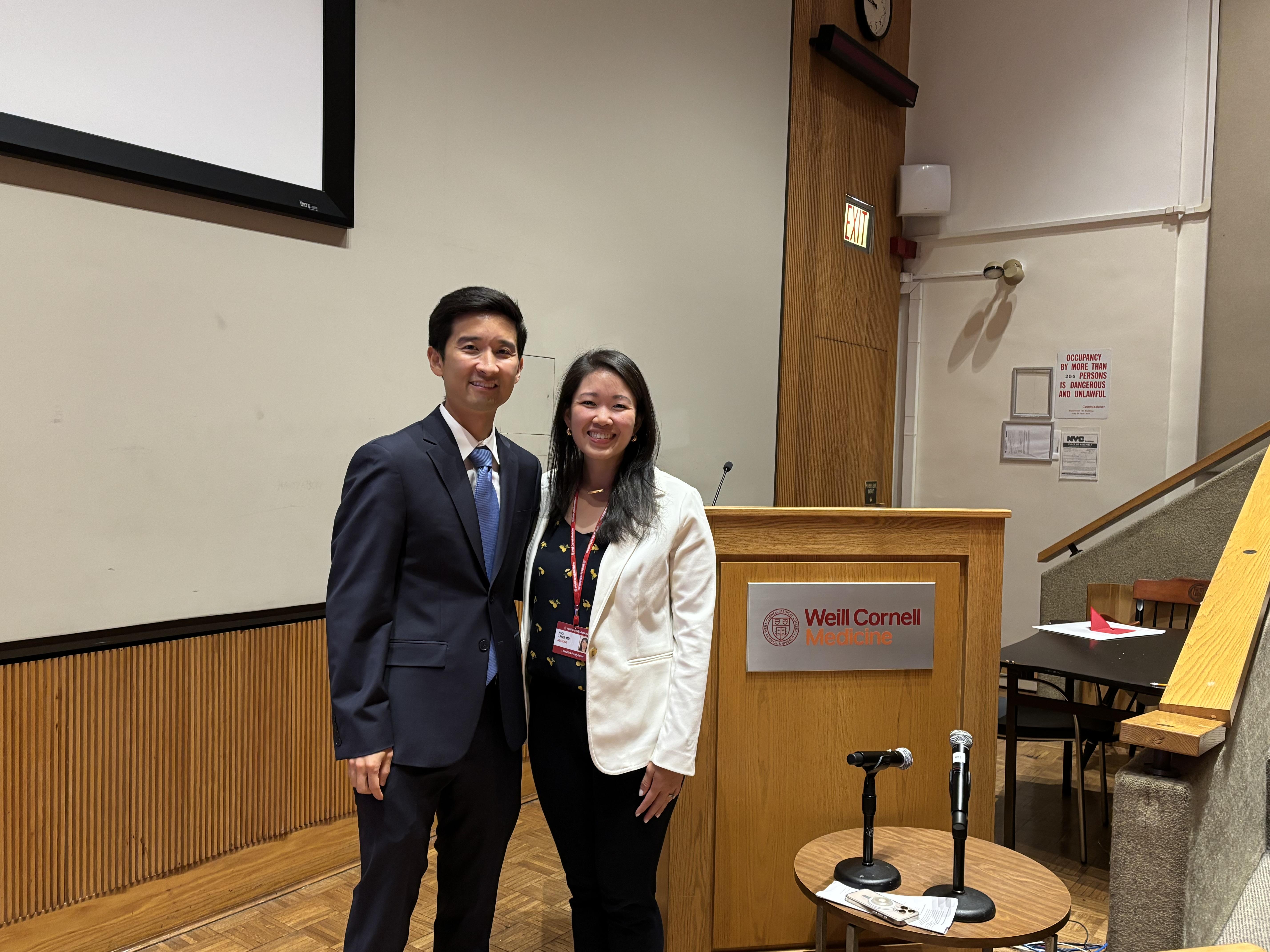The Hospital Medicine Clinical Scholars Program (CSP) in the Division of General Internal Medicine, a renowned faculty-led initiative with an outstanding 97% retention rate, is excited to welcome its largest-ever cohort for 2025-2026, with 11 new clinical scholars joining the program.

Pictured left to right: Drs. Justin Choi and Alice Tang
Recently highlighted during a Medicine Grand Rounds, Dr. Alice Tang, Assistant Chief for Hospital Medicine Education, Co-Director of the Clinical Scholars Program, and Assistant Professor of Clinical Medicine, along with Dr. Justin Choi, Co-Director of the Clinical Scholars Program and Assistant Professor of Medicine, shared the transformative impact of the program. They emphasized the need to change faculty development for early-career hospitalists. Instead of focusing solely on the transfer of knowledge and skills, CSP supports the formation of professional identity, helping physicians develop a sense of purpose, resilience and a sense of belonging in their roles.
To date, CSP has welcomed six cohorts, totaling 39 scholars—54% of whom are women. Scholars have averaged over three peer-reviewed publications annually and, every other year, earned a new award, grant or leadership role. These results reflect the program’s lasting influence on academic output, career growth and service to Weill Cornell Medicine’s mission. Scholars consistently describe the program as deeply empowering, inspiring and one of the most fulfilling experiences of their careers.
Dr. Tang highlighted the importance of “learning by doing,” noting that traditional self-directed approaches aren’t sufficient. “Without real-world application, knowledge rarely leads to meaningful change,” said Dr. Tang. CSP fills this gap by integrating learning directly into clinical practice and harnessing a mentoring team with peer coaches and mentors who cultivate personal strengths, align with shared values and promote collaboration.
Dr. Choi reframed faculty development around identity, well-being and community of practice. As physicians navigate complex roles across clinical, research and administrative domains, a strong professional identity helps them to build academic productivity, job satisfaction, wellness and less burnout. “Our professional identity becomes dynamic and informs how we operate and interact with others in the community,” said Dr. Choi. “It’s a longitudinal, lifelong journey.”
Supporting the focus on professional identity, the study by Dr. Kimberly Bloom-Feshbach, Assistant Professor of Medicine, emphasized that mentorship and role modeling were among the most powerful drivers of professional identity formation in hospitalists. CSP reflected this by creating a strong, supportive community where peer mentoring and shared purpose enhance both individual and group identity development.
Founded in 2017 by Dr. Arthur Evans, Professor of Medicine, CSP was built on these guiding principles. The program includes structured topics such as Point-of-Care Ultrasound (POCUS), clinical reasoning, clinical teaching, ethics, academic writing, leadership and Group Peer Mentoring (GPM).
Designed for early-career faculty entering Hospital Medicine within the Division of General Internal Medicine, CSP offers a structured, nine-week curriculum that promotes focused participation and meaningful development. Through dedicated engagement, faculty embark on a transformative journey that cultivates mentorship, strengthens academic skills and lays the foundation for lasting professional growth.
Recruitment for the 2026–2027 cohort is now open—learn more here.

